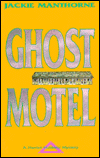Affinity by Sarah Waters
Riverhead Books, 2000.
Overview: Affinity is a story told through the diaries of two Victorian women: Margaret Prior, who becomes a "Lady Visitor" at the women's "gaol" at Millbank Prison in Chelsea, and Selina Dawes, a young spirit medium who is one of its prisoners. Two major plotlines unfurl and inform each other, as we wait with bated breath to see where Margaret's clear attraction toward Selina will lead, as well as to discover who--or what--committed the crime for which Selina is imprisoned.
My reaction: This one was a real treat! It was much different in tone than The Night Watch since it was set about 70 years earlier, but it was just as compelling. Waters delicately balances the major story arcs, and finishes with such a stunning ending that I had to sit on it for hours before writing this review. Like The Night Watch, Affinity comes to life as much through historical detail as it does from its complex and enigmatic protagonists. While trying to slog through Foucault's Surveiller et Punir (Discipline and Punish) in a college French class was quite a challenge, I finally reaped the reward here; Millbank has some essential elements of a Panopticon with its main watch tower and radial floor plan, and disciplinary habits designed to create "docile bodies." Waters' descriptions of prison architecture and routines made me feel claustrophobic, and seemed to be an appropriate background for the stories of two women who were constrained by their circumstances. In particular, Margaret's simultaneous revulsion and attraction to prison life made sense given her station as a well-bred lady in Victorian England. She is not free to love whom she will, or even to be very independent. As she is a spinster (her word, not mine!), her mother insists that her place is in the home with her; it is ironic that the greatest freedom Margaret is allowed is to go to a prison of her choosing.
This is an amazing story to follow, and while it was often a devastating (though beautiful) read, the upside is that it made me feel so lucky to be living in the 21st century!!











